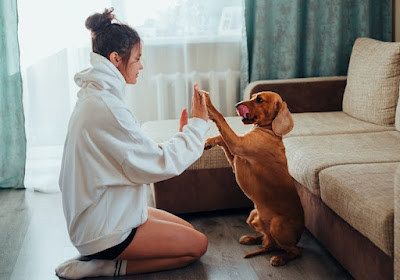Teaching Your Dog Basic Obedience Commands for Safety and Manners
Table of Contents
- Benefits of Training
- Essential Skills to Teach
- Effective Training Methods
- Proofing Commands
- Troubleshooting Problems
Benefits of Training
Consistently practicing basic obedience
strengthens the dog-owner relationship and provides structure. Advantages
include:
- Improved manners and impulse
control
- Increased safety on walks and
off-leash
- Reduced problem behaviors
- Clear communication between dog
and owner
- Enhanced bond through training
time together
Dogs want to please owners. Setting clear
expectations through training allows them to understand how to be successful.
Essential Skills to Teach
These basic commands build a foundation of
polite, controlled behavior:
- Sit - For waiting, greeting people calmly, and
holding position
- Stay - For remaining in place when asked
- Come - For returning when called in any situation
- Down - For settling in place comfortably
- Heel - For walking politely on a loose leash
- Leave it - For ignoring tempting objects and animals
Start training these skills early and practice
often in daily life for the best results.
Effective Training Methods
Use these positive reinforcement techniques to
teach obedience commands:
- Use food treats to motivate and
reward
- Keep sessions short and upbeat
- Give clear hand and verbal
signals
- Gradually increase difficulty
and distractions
- Praise and reinforce desired
behaviors
- Ignore unwanted behaviors
Consistent, reward-based training helps dogs
understand what you want them to do. Advanced classes can build on this
foundation.
Proofing Commands
Once your dog reliably responds to cues at
home, start practicing them in more challenging environments:
- While on walks in the
neighborhood
- Around low to moderate
distractions outdoors
- With longer distances between
you
- With other pets or people
present
- In exciting locations like
parks
"Proofing" obedience ensures your
dog listens regardless of setting. Go slowly and use high-value treats to
motivate compliance.
Troubleshooting Problems
If your dog struggles with certain commands,
try these tips:
- Keep training sessions short
and upbeat.
- Break skills into smaller steps
your dog can master.
- Use extremely rewarding treats
like chicken or cheese.
- Avoid repeating cues - only
give commands once.
- If needed, seek help from a
certified dog trainer.
With clear instruction, encouragement, and
practice, your furry friend will thrive by learning basic obedience skills.

